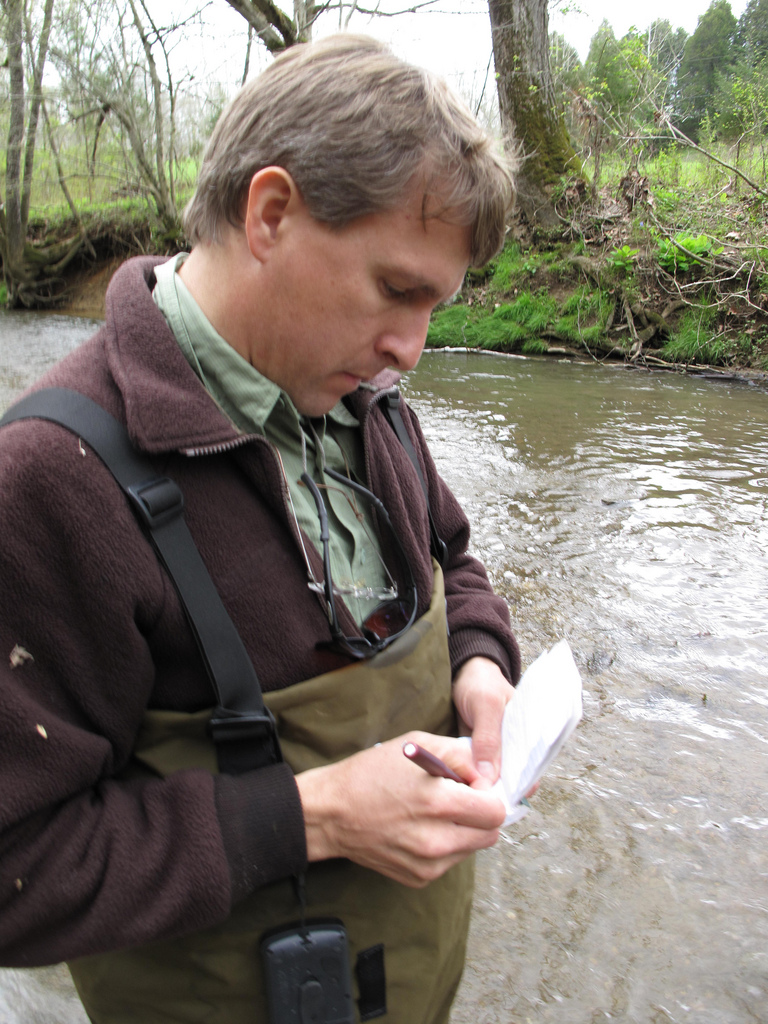
The competing voices in my head each sound reasonable. That’s the problem.
One voice is the keep-track-of-it voice. The one who wants to capture the precise moment with a picture or by writing down that perfectly turned phrase. This voice knows that someday when I stumble upon the preserved memory I’ll stop and take it in again. I’ll be so happy then that I kept it and can remember and relive it.
The other voice is the be-here-now voice. The one who wants to be fully immersed in the present experience, not with one eye on the future memory of the moment I’m still trying to have right now. This voice knows that whatever I remember, unaided, will be enough and just the thing I needed to know when the time comes and that, even if I can technically remember nothing from the present experience, it will have changed me somehow whether or not I can articulate or point to or recall it.
Being the kind of English major I was in college was the perfect combination of these voices. I came to class with novel in hand, underlined and highlighted. I opened my notebook to a fresh sheet and dated the page. The things I wrote in my notebook were extensions of thoughts, an idea or something I wondered about because of the conversation taking place in class. I rarely wrote down plot points of facts or direct quotes from the professor or my fellow students. Mine were not the notes a friend would borrow to catch up on what she missed when absent. My notebook might have only the word “sea” underlined, with no other words nearby, from a discussion of Mrs. Dalloway. It might have the beginnings of an outline for the paper I conceived of during and because of the discussion.
As an English major, I was committed to living in the texts, wading around in them, feeling emotions because of them. For me, class was an extension of the reading experience – a bunch of readers wading in together and seeing how swift the current was or how temperate the water. Who needs notes to understand or remember that sort of thing?
Those note-taking enterprises were entirely different from, say, attending a workshop on saving for retirement, where the terms are not organic or natural to me and where remembering the feeling of the workshop isn’t an adequate action plan to take home and implement afterwards. That kind of endeavor needs 1-2-3 and if/then.
Theology and religious life seem much more like my version of English class than like a retirement workshop. I don’t mean we don’t need rigor and specifics when studying theology or biblical texts, but it does seem we are meant to wade in and see what happens and let our minds free-associate and our hearts feel. I think I used to do that more.
I resist the preacher-with-all-the-answers model of ministry, though too often I have looked for the right or best answer. I’ve let the questioner or the question back me into a corner rather than seeing him or it as an invitation to go swimming.
I notice a strange thing happening these days. As we concoct more and more easily retrievable means of “remembering” (phones and computers and email that can store ridiculous amounts of info, texts, photos, correspondence, recordings…) I’m increasingly worried over forgetting, misplacing, or missing out on something. Strange since it is actually hard to lose track of our information now and easy to save it without once thinking of whether it’s worth saving. (Recent research indicates our devices don’t help us with recall as much as we might like – or as much as old school pen and paper.)
At a fall conference on theology and storytelling, I didn’t feel like preparing for the right answer or being the good note taker. I knew for sure I would forget finer points but I was tired and I was thinking of the time away as a deep well. I needed water, not documentation. So out of exhaustion more than intent, at first, I gave myself permission not to take notes. I sat with an open page and wrote very little. As I watched others in the conference typing and writing furiously, I felt conspicuous at first. I heard the voices in my head arguing. They both made their good points. I was positive I’d forget some things worth remembering – but the permission to be fully present while it was happening was freeing and more important than being able to tell someone else exactly what the speaker had said later on.
I’ve been trying to do this more. Permission not to take notes is an invitation to step in and try the water. I’m guaranteed to forget a few things, maybe even some important things. But that was always going to happen, no matter how copious the notes or diligent the note taker. Besides, I can jot down a few impressions of the experience later, while I dry off on the bank.
*
Photo credit: “Mark Cantrell taking notes” © 2009 Gary Peeples, USFWF, CC BY 2.0

Well said. As an English major, my experience exactly – still.